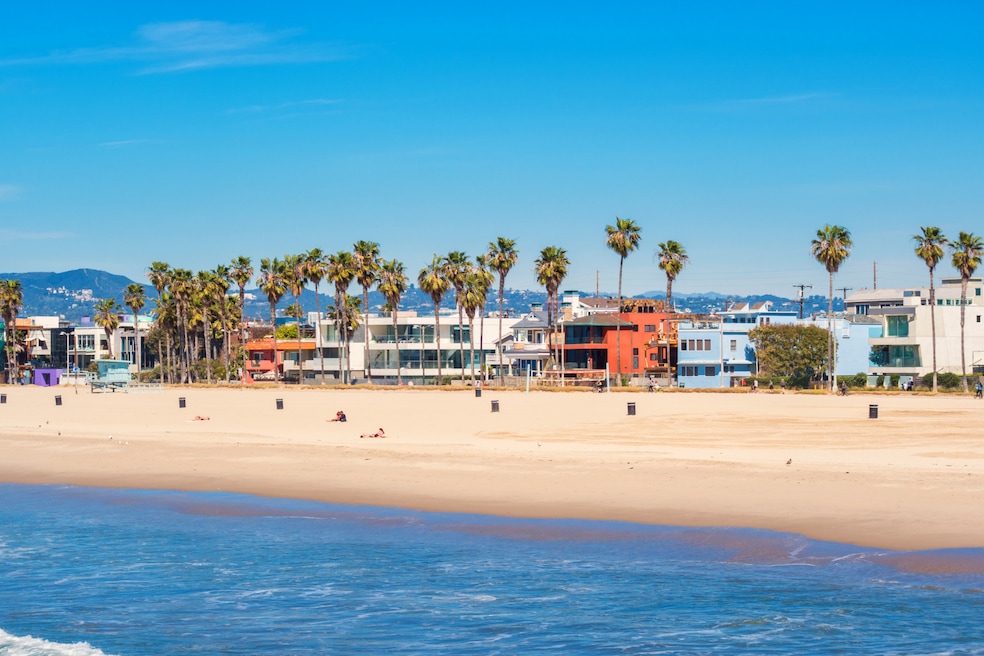Living near the water brings a sense of serenity, a connection known as the "Blue Mind."
In a blog written for the National Marine Sanctuary Foundation, late marine biologist and author Wallace J. Nichols, who coined the term, argued that "time spent near, in, on or under water in any form (as long as it’s healthy) is good for our cognitive, emotional, psychological, social, physical and spiritual wellbeing."
In addition to that inner peace, living near the shore — pond, lake, river, or ocean — also offers easy access to the water, bragging rights, recreational opportunities, higher property values and other benefits.
But it can also come with its own set of particular hazards.
The pros of living near the water
- For many, the best part about living close to the water is the view. But if even if a property doesn’t face the beach or have its own dock, an owner may have rights to use it through a homeowners association. The water presents a host of recreational opportunities, from swimming to kayaking to fishing.
- Waterfront property tends to increase in value faster than nearby homes or land, according to Bankrate.com. A 2019 University of San Diego study found that oceanfront homes command a 45% value premium over homes in the same ZIP code that are not on the water. Homes on lakes and rivers have 25% and 24% premiums, respectively. Coastal regions generally post higher median sale prices than more inland areas. For example, the Maine Association of Realtors reported that the statewide median rose about 9% from 2022 to 2023, but in three coastal counties, it increased between 11% and 32%.
- Especially in hotter climates, cool breezes coming off the water can provide welcome relief.
The cons of living near the water
- Flood insurance is often a must for property owners near water, and it can be expensive. The National Flood Insurance Program is available in many, but not all parts of the U.S. Besides flooding, water can cause other issues, such as land erosion, and ocean and tidal waters contain salt that can degrade buildings over time. Expect things to rust faster. Nick Slavik, who chairs the board of the Painting Contractors Association, said in an email that the paint on an average home's exterior needs maintenance about every seven years. Near the ocean, the key is not necessarily to repaint more often, he said, but to scrub as needed with a detergent to remove salt residue and use a paint designed to repel contaminants.
- Those coastal breezes are wonderful, but make sure your outdoor furniture is heavy, so it won't blow away.
- Areas near water can be tourist havens, meaning increased traffic on the roads and on the water. Beaches in front of homes are often open to the public, at least up to the high-water line, so privacy is limited.
- There are often more limits on what an owner can do with a property if it’s within a certain distance of water. Sometimes a house has to be set back farther from the property line to protect sand dunes or the water itself. There may be restrictions on how the coastline can be used because of animal nesting areas.
Things to look for if you want to buy on the water
- If a state requires it, someone looking to buy a home should ask for a written disclosure of the flood risk. In 2024, North Carolina began obligating sellers to provide that information. At least 35 other states have similar rules, according to the Federal Emergency Management Agency.
- Buyers should check with the local government in the areas where they are considering buying a home to see whether their property is in a flood zone. They should also inquire whether insurance companies offer homeowners policies, because some firms may have reduced coverage or eliminated them in areas prone to flooding or other natural disasters.
- Does the home have the major systems — plumbing, heating, cooling, and electrical — on the second floor?
